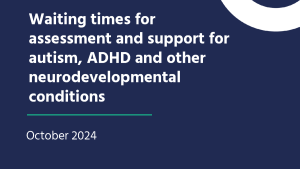This briefing looks at the immediate conditions unaccompanied asylum-seeking children faced after travelling to the UK, usually via boat, during 2020. Specifically, it focuses on the children who arrived at the Kent Intake Unit, where children’s identities are checked and their initial asylum claims are processed before they can be accommodated by local authorities. After visiting this unit in August 2020, the Children’s Commissioner had some concerns about how long children were being held there. In order to investigate further, the Commissioner requested data from the Home Office on how long unaccompanied children were kept at the intake unit between April and December 2020, when high numbers of children were making this journey across the English Channel to the UK. The Commissioner used her statutory powers of data collection to obtain this information, as it is not publicly available. This briefing contains the key findings from this data.
The data shows that children, who had just arrived in the UK after difficult and often traumatic journeys fleeing violence or persecution, were frequently being held at the unit for extensive periods of time. Nearly 1 in 5 unaccompanied children were detained for over 24 hours between April and September, even though detention over 24 hours is banned under the Immigration Act 2014, and longer detention is only permitted in ‘exceptional circumstances’ following Home Office Secretary of State authorisation. Additionally, from September onwards children were staying for very long periods in another waiting area straight after being released from detention. Durations in this non-detained area sometimes exceeded 95 hours – around 4 days on end – during which time their movements were still very limited.
This means that some of these highly vulnerable children were being held for long periods in places which cannot meet their needs and are detrimental to their wellbeing. When detained, children go without proper sleeping facilities and access to fresh air, yet they are required to attend official interviews and give information which could have serious implications for their asylum claims and future in the UK. Long waiting times in confined conditions are particularly alarming in the midst of a pandemic in which people’s health and safety is dependent on social distancing.






